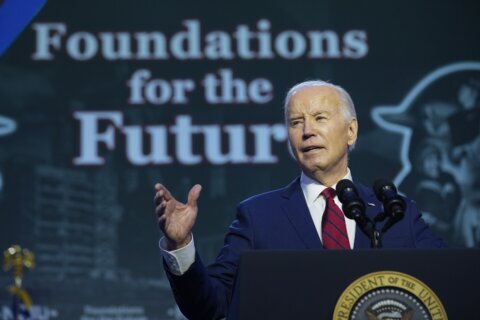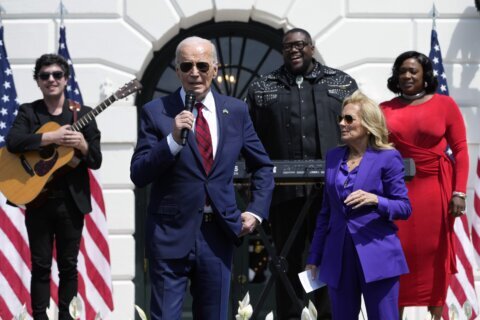WASHINGTON (AP) — Forecasting economic change in a pandemic was always going to be hard. Now omicron, the new COVID-19 variant sweeping across the globe, has made it even harder. Economists and policymakers, after all, have no real-world experience contending with the economic fallout from a worldwide pandemic. In the United States and other wealthy countries, massive government spending fueled an unexpectedly strong rebound from last year’s coronavirus recession; a surprise surge in demand overwhelmed factories and ports and led to a resurgence in inflation. To learn more about the economic implications of omicron, the Associated Press spoke with Megan Greene, chief economist at the Kroll Institute and a scholar at the Harvard Kennedy School. The interview has been edited for length and clarity.
Q: Looking at omicron, what’s the biggest worry — the impact on inflation or on growth?
A: Starting with the demand side, (the University of Chicago’s) Austan Goolsbee and Chad Syverson put out a study looking at whether people responded more to official regulations or to fear, and found that it was fear that was actually driving things, not restrictions at all. So even without the restrictions, I think we could end up with people effectively sheltering at home; that would choke off demand, which should take some pressure off of inflation.
At the same time, we’ve already had Chinese factory closures on the back of outbreaks. That could exacerbate supply disruptions. We’re finding that it’s not just the demand surge. It’s the demand-for-stuff surge. The composition of what we’re buying has really changed during the pandemic away from services towards goods. So if everybody is freaked out that going to a bar or restaurant is going to land them in the hospital, they may continue to buy goods. So that could exacerbate that trend and make inflation worse.
Q: Could it end up in a worst-case, stagflation scenario — growth slowing but inflation still simmering?
A: Yes. Although if growth is really dampened, that should keep the heat off inflation. I think our conversation around growth in the U.S. will look very different in six months: China is slowing down massively. We’re going to have a big fiscal drag because we won’t be repeating the same fiscal stimulus that we had. You could say there is a scenario where we end up with stagflation. It’s not my base-case scenario, though.
Q: So there’s just a lot of uncertainty?
A: We just don’t have enough data yet. If (omicron) proves highly transmissible but hospitalizations don’t really rise — that could be a best-case scenario in that everyone gets it but everyone’s kind of fine. So this thing could have morphed into something more like the flu or a cold. But it could also be that hospitalizations rise because so many more people are getting it.
Copyright © 2024 The Associated Press. All rights reserved. This material may not be published, broadcast, written or redistributed.







